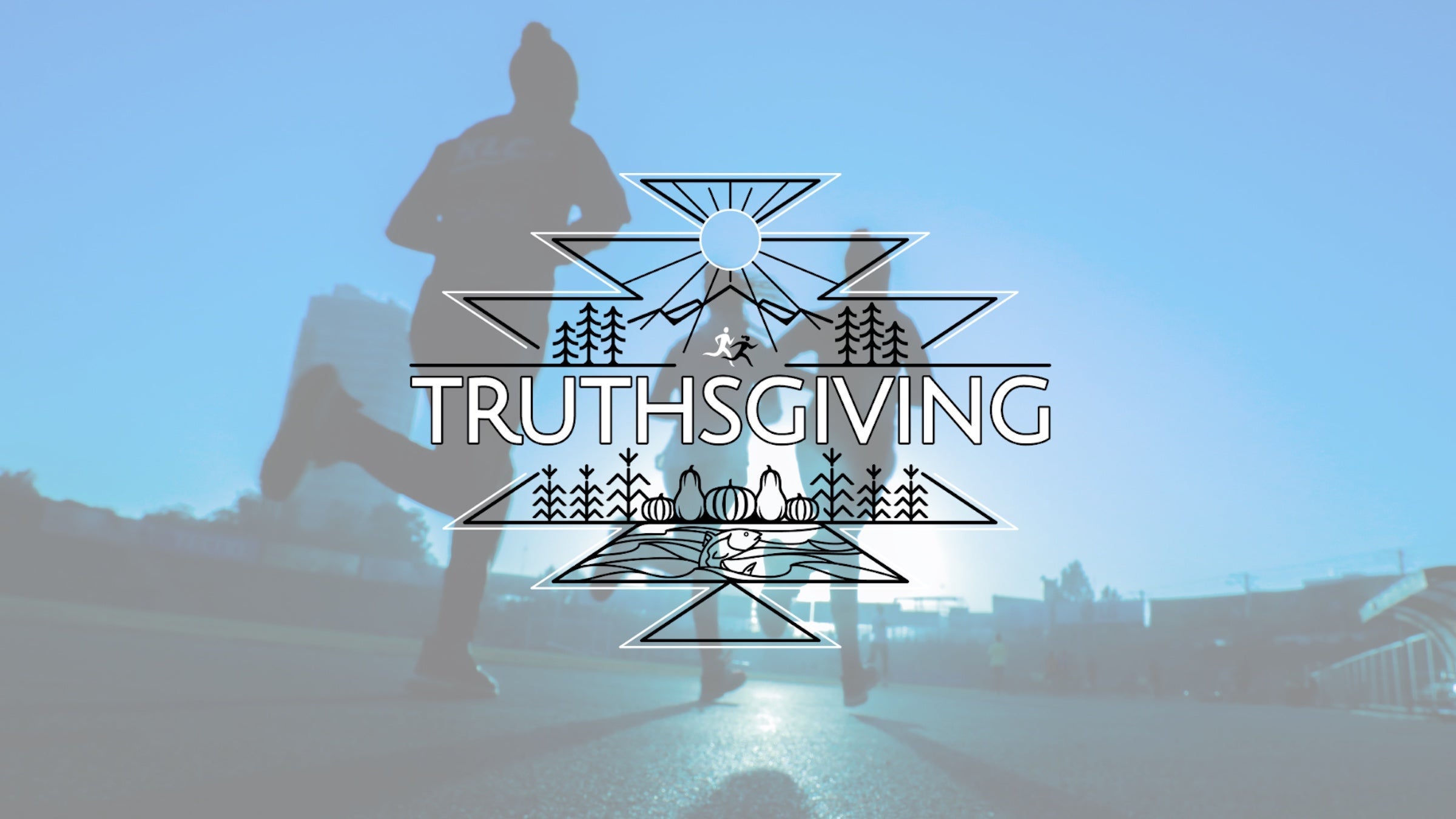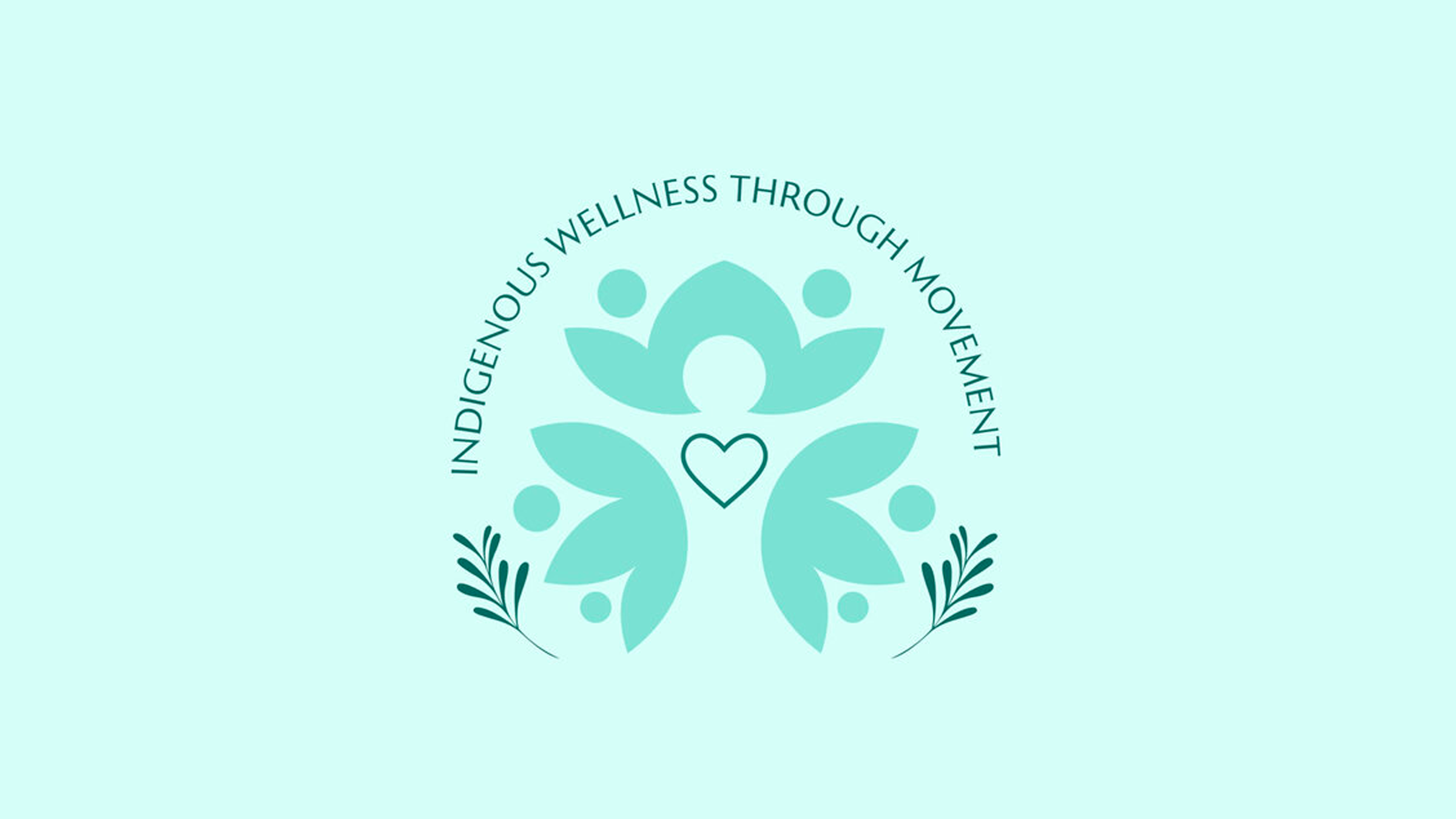Runners Amplify Indigenous Experience with Truthsgiving 4 Miler

On Thursday, November 24, tens of thousands will lace up for their local turkey trot. In most cases, these races depict the positive version of the Thanksgiving story while neglecting the tragic Indigenous experience surrounding the holiday. For the last three years, a group of Indigenous runners has sought to change that.
From November 24 through November 27, Rising Hearts—an Indigenous-led grassroots organization—will host the third annual Truthsgiving 4 Miler. The run was created to honor Indigenous history, foster allyship, and share the true history of Thanksgiving during Native American Heritage Month.
For the last two years, Rising Hearts has partnered with ReNew Earth Running, a nonprofit dedicated to restoring land to Indigenous communities, to donate race proceeds to the Mashpee Wampanoag tribe—the group that made first contact with English settlers and has inhabited present day Massachusetts and eastern Rhode Island for more than 12,000 years.
The Truthsgiving 4 Miler originated as a virtual run during the height of the pandemic in 2020 and has since grown with four in-person races. For the first time ever, runs will take place in St. Paul, Minnesota (11/24), Harrisonburg, Virginia (11/24), Washington D.C. (11/26), and Los Angeles, California (11/26) this year.
By hosting the Truthsgiving 4 Miler on Thanksgiving weekend, Rising Hearts founder Jordan Marie Brings Three White Horses Daniel hopes to encourage runners to be open to a new perspective on the holiday. “We’re not trying to turn people off or away by saying you can’t do it,” Daniel tells Women’s Running. “It’s about reframing your opinion of it and reframing the language around it, which is why we call it Truthsgiving and not Thanksgiving. We want people to understand the true history.”
What Thanksgiving Means to Indigenous People
Generations of children in American schools have been educated on the positive version of the Thanksgiving story in which Plymouth colonists and the Mashpee Wampanoag tribe shared one of the first autumn harvest feasts, celebrating a 50-year alliance that started in 1621, a year after English settlers arrived in what is now the United States.
However, for many Indigenous people, Thanksgiving is considered a day of mourning and protest. As Indigenous nonprofit Native Hope shared, the day commemorates the arrival of settlers in North America and the centuries of oppression, land theft, and genocide that followed for Indigenous communities.
“Very few teachers get a chance to tell students about the massacres of Native tribes like the Pequot that took place in the years that followed. They also do not mention that English settlers robbed Wampanoag graves and stole food from them in order to survive during their first years on this new continent,” Native Hope organizers wrote in a blog post.
While people around the United States celebrate the holiday with turkey and pie, many Indigenous communities lead protests. In 1970, the United American Indians of New England named the fourth Thursday in November as the National Day of Mourning for Native Americans and their allies. Every year, people gather at Cole’s Hill in Plymouth, Massachusetts, for an organized rally on Thanksgiving.

How Runners Can be Better Allies
In the running community, many kick off Thanksgiving with a turkey trot in the morning. As Runner’s World reported in 2021, it’s the most popular and oldest continuous footrace in America. And the number of participants keeps growing with the exception of pandemic cancellations. According to Running USA, more than 961,882 people finished a trot in 2016, up from 684,334 in 2011.
By hosting the Truthsgiving 4 Miler, race organizers hope to encourage runners to be more mindful this holiday season and all year-round. “We should be thankful for the food that we’re eating, the roofs over our heads, and the gift of running. But the Thanksgiving holiday carries a heavy weight to it. It’s something we passively accept as just turkey and football, but it’s a lot more than that,” Michael Harralson, founder of ReNew Earth Running, tells Women’s Running. “In my opinion, we should remember the historical context of the holiday, and if we’re going to have a holiday about it, it should be truthful.”
Harralson and the team at ReNew Earth Running will host one of the four in-person races this year at Pike Island, located on the portion of the Mississippi River that runs through St. Paul, Minnesota. “Wherever we are on Native land, there are truths to be told. The race is highlighting the truths about the Thanksgiving holiday, but we’re going to do some truths about the place where we’re holding our event,” Harralson says, explaining that the history of Pike Island includes the Dakota peoples’ creation story as well as the tragic 1862 U.S.—Dakota War after which more than a thousand Dakota people were forced into fenced confinement.
An Opportunity to Build Community
Those who register for the Truthsgiving 4 Miler are encouraged to dig deeper into Indigenous history and support Indigenous communities with year-round action steps, including buying Native, reading books by Native authors, donating to Indigenous organizations, and “decolonizing” the Thanksgiving plate by making Indigenous cuisine, among other recommendations shared by race organizers leading up to the event. They also want to make the race accessible with a reasonable price point (between $25-30) and by providing the option for people to sponsor other runners’ participation.
Daniel says the response to the race has been positive with a few exceptions. In its first year, some had negative reactions to the concept of sharing the true story behind the holiday, but they’ve become less vocal in recent years, she says. Many have reached out with their own positive race experiences or shared efforts to start conversations about Truthsgiving at the dinner table. So far, race organizers have raised about $10,000 each year for the Mashpee Wampanoag tribe, in an effort to support a group whose experience needs to be shared.
“The biggest thing that harms Indigenous people in our communities is the constant erasure, stereotypes, racism, and invisibility that we’re experiencing,” Daniel says. “This run is an opportunity to present the true narrative, for people to get a better insight into who we are beyond the racism and stereotypes, and to actually be in community together.”